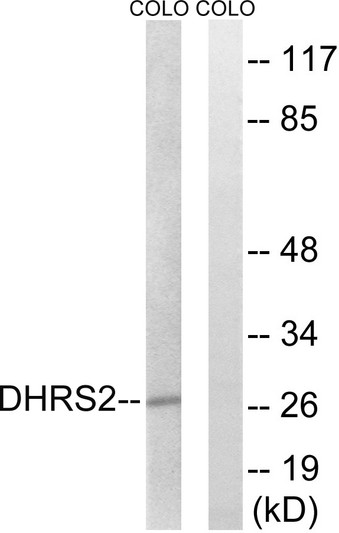| Function | NADPH-dependent oxidoreductase which catalyzes the reduction of dicarbonyl compounds. Displays reductase activity in vitro with 3,4-hexanedione, 2,3-heptanedione and 1-phenyl-1,2-propanedione as substrates. May function as a dicarbonyl reductase in the enzymatic inactivation of reactive carbonyls involved in covalent modification of cellular components. Also displays a minor hydroxysteroid dehydrogenase activity toward bile acids such as ursodeoxycholic acid (UDCA) and isoursodeoxycholic acid (isoUDCA), which makes it unlikely to control hormone levels. Doesn't show any activity in vitro with retinoids and sugars as substrates. Attenuates MDM2-mediated p53/TP53 degradation, leading to p53/TP53 stabilization and increased transcription activity, resulting in the accumulation of MDM2 and CDKN1A/p21. Reduces proliferation, migration and invasion of cancer cells and well as the production of ROS in cancer. |
| Protein Name | Dehydrogenase/Reductase Sdr Family Member 2 - MitochondrialDicarbonyl Reductase Hep27Protein DShort Chain Dehydrogenase/Reductase Family 25c Member 1Protein Sdr25c1 |
| Database Links | |
| Cellular Localisation | Mitochondrion MatrixNucleusA Minor Fraction Of The Protein Is Translocated From The Mitochondria To The NucleusAfter Cleavage Of The Targeting Signal |
| Alternative Antibody Names | Anti-Dehydrogenase/Reductase Sdr Family Member 2 - Mitochondrial antibodyAnti-Dicarbonyl Reductase Hep27 antibodyAnti-Protein D antibodyAnti-Short Chain Dehydrogenase/Reductase Family 25c Member 1 antibodyAnti-Protein Sdr25c1 antibodyAnti-DHRS2 antibodyAnti-SDR25C1 antibody |
Information sourced from Uniprot.org











